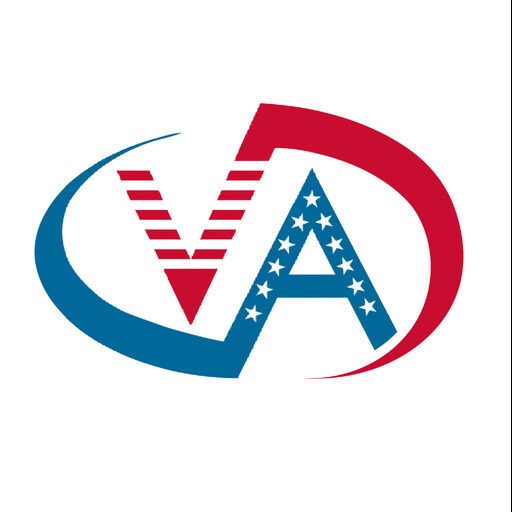
Navigating the VA claims and appeals process can be overwhelming for Veterans seeking benefits for disabilities or other service-related conditions.
The Department of Veterans Affairs (VA) offers a range of services to assist Veterans, but knowing where to start and how to get help is essential for a successful claim.
Whether you are filing for the first time or appealing a decision, this guide provides insight into the resources available, key steps in the process, and strategies to improve your chances of a favorable outcome.
Understanding the VA Claims Process
The VA claims process begins when a Veteran submits a claim for disability compensation, pension, or other benefits related to service. This can involve providing medical records, service documents, and other evidence to support the claim. Once a claim is submitted, the VA reviews it and makes a determination, which can take several months.
Key Steps in the VA Claims Process:
- Filing a Claim: Veterans must submit the appropriate forms and documentation for the benefits they seek.
- VA Review: The VA will review medical and service records, conduct any necessary exams, and decide on the claim.
- VA Decision: A decision is issued, which could approve, deny, or partially approve the claim.
Many Veterans find the process complex and time-consuming, which is why assistance is available through various organizations and professionals. Seeking help early on can ensure that claims are well-prepared and have the best chance of approval.
VA Disability Resources
Navigating the VA disability claims process can be complex, but there are numerous resources available to assist you. Here's a comprehensive guide to help you through the process:
1. Department of Veterans Affairs (VA) Resources
- VA Disability Compensation Benefits: The VA provides detailed information on eligibility, the application process, and benefits on their official website.
- eBenefits Portal: This platform allows you to apply for benefits, check claim status, and access other VA services online.
2. Filing a VA Disability Claim
- How to File a VA Disability Claim: The VA offers a step-by-step guide on filing a disability claim, including required forms and evidence.
- Fully Developed Claims (FDC): Submitting an FDC can expedite the process. This involves providing all necessary evidence upfront, reducing the time the VA spends gathering information.
3. Understanding the Claims Process
- VA Claim Process with Timelines: Familiarize yourself with the eight-step VA claim process, from submission to decision notification.
- Checking Claim Status: Monitor your claim's progress through the VA's eBenefits portal or by contacting the VA directly.
4. Evidence and Documentation
- Medical Records: Ensure you have comprehensive medical records supporting your claim. This includes service treatment records and any private medical records related to your condition.
- Nexus Letters: A nexus letter from a qualified healthcare provider can establish the connection between your service and the claimed disability.
5. Seeking Assistance
- Veterans Service Organizations (VSOs): Organizations like the Disabled American Veterans (DAV) offer free assistance with claims and appeals.
- Accredited Representatives: You can work with accredited attorneys or claims agents for personalized guidance. Ensure they are recognized by the VA.
6. Appeals Process
- Decision Reviews and Appeals: If you disagree with the VA's decision, you have the right to appeal. The VA provides information on the appeals process and how to request a decision review.
7. Additional Resources
- VA Disability List of Conditions: Review the list of conditions recognized by the VA to understand what qualifies for disability compensation.
- National Resource Directory: Access a comprehensive list of resources for Veterans, including housing assistance, employment support, and healthcare services.
By leveraging these resources and ensuring thorough documentation, you can navigate the VA disability claims process more effectively. Seeking assistance from accredited organizations or representatives can provide personalized support tailored to your situation.
Why VA Claims Are Often Denied
One of the most frustrating aspects for Veterans is receiving a denial letter from the VA. Denials often stem from insufficient evidence, missing documentation, or a failure to meet specific criteria. Understanding the common reasons for denials can help Veterans strengthen their claims from the start.
Common Reasons for Denial:
- Lack of Sufficient Medical Evidence: The VA may deny a claim if there is not enough medical documentation to prove that the condition is related to service.
- Missing or Incomplete Documentation: Failure to submit all necessary documents, including service records and medical exams, can result in denial.
- Incorrect Filing: Veterans sometimes file for benefits they are not eligible for, or they do not submit the required forms properly.
To avoid these pitfalls, Veterans should gather all relevant medical and service records and work with a VA-accredited representative to ensure their claim is filed correctly.
How to Appeal a VA Claim Denial
If your VA claim is denied, you have the right to appeal the decision. The appeals process can be lengthy but offers several opportunities to present additional evidence or clarify misunderstandings.
Steps in the VA Appeals Process:
- File a Notice of Disagreement (NOD): The first step in the appeals process is to submit a NOD within one year of the VA's decision.
- Request a Higher-Level Review: You can request that a more experienced VA representative review your claim without submitting new evidence.
- Submit a Supplemental Claim: If you have new and relevant evidence, you can file a supplemental claim.
- Appeal to the Board of Veterans' Appeals: If you disagree with the decision, you can appeal to the Board, which involves a hearing before a judge.
The appeals process is complex, but Veterans can seek help from accredited organizations to navigate the system and ensure their case is presented effectively.
Average VA Claim Processing Times
| Claim Type | Average Processing Time |
|---|---|
| Initial Disability Claim | 125 days |
| Appeal to Board | 365 days |
| Supplemental Claim | 60 days |
Tips for Strengthening Your VA Claim
- Gather Comprehensive Evidence: Include all relevant medical records, service documents, and any statements from doctors or other professionals.
- Submit Timely Documentation: Ensure that all necessary documents are submitted on time and that you keep track of deadlines for filing claims or appeals.
- Work with a Representative: VA-accredited representatives can provide guidance and ensure your claim is filed correctly.
- File a Strong Appeal: If denied, file a Notice of Disagreement and gather additional evidence to support your case.
How to Find the Right Help
When navigating VA claims, it’s crucial to find the right support to maximize your chances of a favorable outcome. Here are some tips on where to seek help.
Veterans Service Organizations
VSOs can be a valuable resource for Veterans seeking claims assistance. With accredited representatives, these organizations are equipped to provide personalized guidance through the claims and appeals processes.
Online Resources
The VA’s website offers comprehensive guides and tools for Veterans looking to understand their benefits. Additionally, websites like VA.gov offer step-by-step instructions on how to submit claims and appeals.
Legal Assistance
In some cases, especially with complex or ongoing claims, Veterans may need legal assistance. VA-accredited attorneys can help ensure that all legal options are explored when dealing with denied claims or appeals.
Conclusion
The VA claims and appeals process is essential for Veterans seeking the benefits they deserve. While it can be complex, resources such as VSOs, accredited attorneys, and state Veteran offices are available to help Veterans navigate the system. By understanding the process, knowing what to expect, and getting the right support, Veterans can improve their chances of success.
FAQs
What is the typical processing time for a VA claim?
The average processing time for an initial disability claim is around 125 days, but this can vary depending on the complexity of the case.
Can I appeal a denied VA claim?
Yes, Veterans have the right to appeal denied claims. Appeals can involve requesting a higher-level review, submitting a supplemental claim, or appealing to the Board of Veterans' Appeals.
How do I get help with filing a VA claim?
You can seek assistance from Veterans Service Organizations (VSOs), VA-accredited representatives, or legal professionals specializing in VA claims.
Are there organizations that help with VA appeals?
Yes, organizations like the American Legion, Disabled American Veterans (DAV), and Veterans of Foreign Wars (VFW) provide support for VA appeals.
What evidence should I include with my VA claim?
It's essential to include all relevant medical records, service documents, and any statements from doctors or other professionals that support your claim.
How long do I have to file a VA appeal?
You have one year from the date of the VA's decision to file an appeal.
Can I hire an attorney for my VA claim?
Yes, Veterans can hire VA-accredited attorneys to assist with claims and appeals, particularly for complex cases.

The VA Loan Network Editorial Team is comprised of dedicated mortgage specialists and financial writers committed to providing veterans and service members with accurate, up-to-date information on VA loan benefits, eligibility, and the home-buying process.








